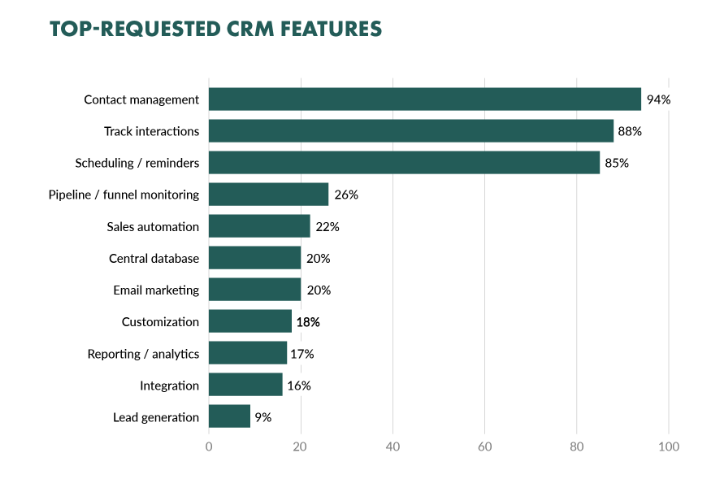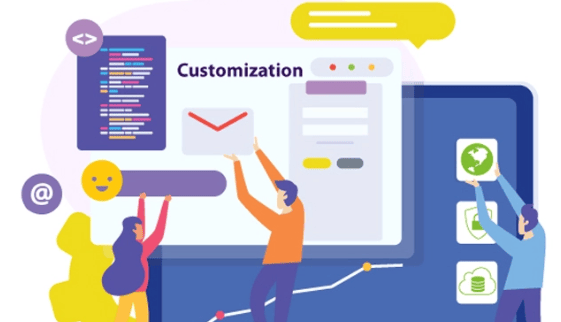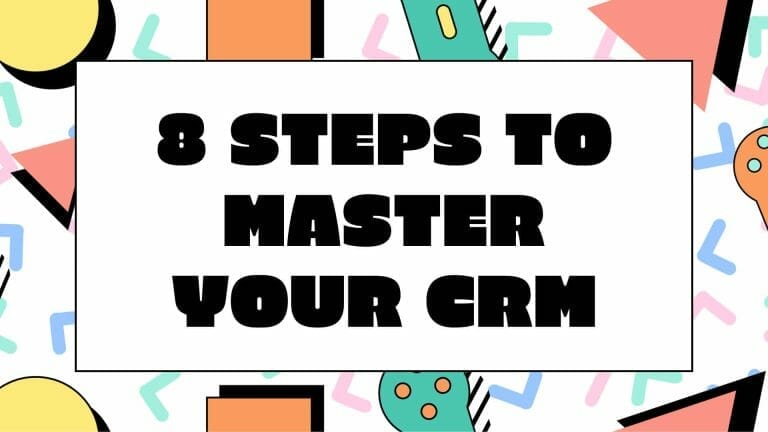Do you ever feel like your business is in a constant state of chaos? Like you’re drowning in a sea of spreadsheets, emails, and sticky notes? Fear not, my friend – CRM implementation is here to save the day! Customer Relationship Management (CRM) implementation can streamline your business operations and help you focus on what matters most – your customers!
But hold up, don’t go diving into that CRM pool just yet. First, let’s chat about what CRM implementation actually means and why it’s so important for small businesses. We’ll also cover the advantages of implementing CRM, how to identify your business needs and goals for CRM, and even how to form a dedicated team for successful implementation.

And because we’re all friends here, we’ll share some hilarious stories about common mistakes to avoid during CRM implementation (trust us, we’ve seen some doozies). So grab your coffee and let’s dive into the wonderful world of CRM!
Understanding CRM Implementation
So you’re ready to dive into the world of CRM implementation! This process has the potential to streamline your business operations and improve customer satisfaction and retention. By implementing CRM software, you’ll be able to efficiently manage customer relationships and migrate your existing customer data into a new system.
But hold on, it’s not as simple as flipping a switch. CRM implementation requires careful planning and execution. You’ll need to form a dedicated CRM implementation team that can create a comprehensive CRM implementation plan. This team will be responsible for integrating your CRM with your existing tool stack, customizing it to fit your business workflows, and training your sales managers and other team members on how to use it effectively.
In the long run, a successful CRM implementation can have a significant impact on your business. It can help you track and measure your CRM implementation goals, boost efficiency and productivity, and even attract potential customers. Just make sure to follow best practices and choose the right CRM, like HubSpot, for your specific needs.
Remember, integrating a new CRM is a journey, but with the right plan and a bit of humor, you’ll be well on your way to reaping the benefits of this powerful tool. So let’s get started and make your CRM implementation a success!
The Need for CRM in Small Businesses
Small businesses need CRM implementation to effectively manage customer interactions. It allows them to track leads and sales opportunities, improving efficiency. With CRM software, small businesses can automate tasks and provide superior customer service and support. Implementing CRM helps them stay organized and focused, benefiting them in the long run. By implementing CRM, small businesses can attract potential customers and increase customer retention. It is considered a best practice for sales managers looking to streamline their operations. So, if you’re a small business, consider adopting a CRM app like HubSpot for your CRM implementation plan.
The Advantages of Implementing CRM
Boosting efficiency and productivity is a breeze with CRM implementation. Say goodbye to manual tasks as CRM automates them, freeing up valuable time for sales managers to focus on closing deals. Additionally, implementing CRM provides a crystal-clear view of the sales pipeline and customer data, giving businesses the insights they need to make informed decisions.
But wait, there’s more! CRM enhances customer relationships, leading to improved customer satisfaction and retention. With custom reports and metrics offered by CRM software, tracking business performance becomes a breeze. Plus, better collaboration among team members is ensured, creating a harmonious CRM implementation team. So why wait? Take the plunge and enjoy the long-run benefits of CRM implementation. Potential customers will surely thank you!

Boosting Efficiency and Productivity with CRM
Sales managers rejoice! CRM implementation is here to streamline your team’s workflow and boost efficiency. Say goodbye to manual data entry, as CRM automation saves valuable time for your sales reps. By eliminating duplicate data entry and improving accuracy, your team can focus on what they do best – making sales. With real-time visibility into customer touchpoints, CRM software enables you to track interactions and better understand your potential customers.
Plus, by automating email and sales communication, CRM increases productivity and ensures no lead slips through the cracks. Get started on your CRM implementation plan today and watch your business thrive in the long run. Remember, a happy sales team means happy customers! So, why wait? Let CRM be your wingman and watch your business take flight.
Identifying Your Business Needs for CRM
Before diving into CRM implementation, it’s crucial to assess your business requirements. CRM systems are designed to help businesses manage customer data and track interactions, but you need to determine what functionality and features you truly need. Consider the scalability and usability of the CRM platform to ensure it can grow with your business in the long run. Additionally, align your CRM implementation with your specific business goals and processes to maximize its effectiveness. By identifying your unique needs, you can find the CRM solution that best suits your business.
Defining Goals and Objectives for CRM Implementation
Setting goals and objectives is crucial for a successful CRM implementation. To start, clearly define what you want to achieve with your CRM system. Are you looking to improve customer retention? Increase sales efficiency? Streamline your sales processes? Identifying your goals upfront will help guide your implementation plan. Additionally, it’s important to set realistic timelines and milestones to track progress along the way. Remember, getting buy-in from your team members and stakeholders is vital for a smooth CRM implementation. So, make sure everyone is on board right from the start!
Setting a Budget for CRM Implementation
So, you’ve decided to take the leap and implement a CRM system for your business. Great choice! Now, let’s talk about setting a budget for CRM implementation. We all know that budgeting can sometimes feel like trying to hit a moving target, but fear not! With a few considerations, you can set a budget that aligns with your business needs and ensures a smooth implementation process.

First things first, determine a budget based on your unique requirements. Think about the cost of the CRM software itself, including licenses and any additional implementation services you may need. It’s also crucial to evaluate the pricing models and plans offered by different CRM vendors to find the best fit for your budget.
But wait, there’s more! Don’t forget to factor in the cost of training and ongoing support for your CRM users. After all, a well-trained team is more likely to embrace the new system and use it to its full potential. And when it comes to getting the most value for your money, choose a CRM solution that meets your business requirements while providing room for growth in the long run.
Now that we’ve covered the financial side of things, let’s not forget about the ultimate goal of implementing CRM: boosting customer retention and driving sales. A successful CRM implementation will help you streamline your processes and provide better experiences for both potential and existing customers. So, set that budget wisely, and get ready to take your business to new heights!
Exploring Options: Choosing the Right CRM for Your Business
So, you’re ready to dive into the world of CRM implementation and streamline your business operations. But with so many options out there, how do you choose the right CRM for your specific needs? Let’s explore some key factors to consider when making this important decision.
First and foremost, you want a CRM that fits your business like a glove. Evaluate different CRM options and carefully weigh their ease-of-use, customization capabilities, and integration capabilities with your existing tools and software. After all, you want a CRM that will seamlessly integrate into your workflow and make life easier for everyone, from sales managers to customer service representatives.
Scalability is another factor to keep in mind. While your business may be small today, it’s essential to think long term. Will the CRM you choose be able to grow with your business and accommodate the influx of potential customers down the line? This is where assessing the scalability of a CRM system becomes crucial.
Of course, advanced features can also make a significant impact on your CRM experience. Look for a CRM platform that offers custom fields and workflows, enabling you to tailor the system to your specific needs. These additional features can boost efficiency and help you implement best practices in managing your customer relationships.
Finally, don’t forget to consider user reviews and ratings. Hearing from others who have already implemented the CRM solution you’re eyeing can provide valuable insights and help you make a more informed decision.
Now armed with these talking points, go forth and find the CRM that will revolutionize the way you do business. Remember, choosing the right CRM is a vital step in optimizing your operations and improving customer retention. So take your time, involve your CRM implementation team, and consider all the options carefully. In the long run, it will be worth it.
Forming a Dedicated CRM Implementation Team
Now that you’ve decided to embark on the exciting journey of CRM implementation, it’s crucial to form a dedicated team to oversee the process. This team will be responsible for ensuring a smooth and successful implementation. Start by appointing a project manager who will coordinate and manage the implementation. It’s also important to include representatives from different departments to ensure that all requirements are met. This diverse team will bring valuable perspectives and insights into the implementation process. Remember, collaboration and communication among team members are key to a successful CRM implementation.
Data Migration: What to Include in Your New CRM
So you’re ready to migrate your data into a new CRM system? Great! Remember, careful planning is key for a smooth CRM implementation. Make sure to include important information such as customer contacts, sales history, and other relevant customer data. But before you migrate the data, it’s crucial to cleanse and validate it to avoid any issues down the line. Accurate mapping of data fields is also essential to prevent data loss or inconsistencies.
And of course, don’t forget to test the migrated data in the new CRM system to ensure accuracy and completeness. In the long run, these best practices will help you effectively manage customer relationships and attract potential customers. So get your CRM implementation team ready and let’s streamline your business!
Integrating CRM with Your Existing Tool Stack
Now that you have implemented CRM and understood its advantages, it’s time to take it a step further. By integrating CRM with your existing tools, you can streamline your business processes and improve efficiency. Imagine having all your customer data in one central CRM system, seamlessly connected with your email, sales team, and automation tools. This not only simplifies your workflow but also enhances your customer relationship management. So, why not take the plunge and integrate your CRM with your customer support systems as well? It’s a win-win situation in the long run, ensuring better collaboration and maximizing the value of your CRM.
Onboarding and Training Your Team for CRM Use
So, you’ve taken the plunge and decided to implement a CRM system for your business. That’s great! Now comes the important step of onboarding and training your team for CRM use. You want to ensure a smooth transition and empower your team with the necessary skills and knowledge to effectively utilize the CRM software. One way to make the implementation process easier is by creating a comprehensive onboarding plan, especially for new CRM users.
This plan can help them quickly understand the functionalities and benefits of the CRM system. Additionally, offering ongoing training and support will foster a positive user experience, leading to increased user adoption and satisfaction. Remember, a well-trained team is the key to successful CRM implementation in the long run.
Customizing CRM to Fit Your Business Workflows
Tailoring your CRM to align with your unique business workflows and requirements is essential for streamlining operations. By customizing your CRM system, you can optimize it to meet your specific business needs, resulting in enhanced productivity. Create custom fields and reports that provide relevant insights, enabling you to make informed decisions. Personalize the user interface for a seamless and intuitive user experience. Adapt your CRM platform to match your business processes and enhance usability. With a customized CRM, you can effectively manage your customer interactions, drive sales, and improve customer retention. So, don’t be afraid to customize your CRM—it’s a best practice in the long run!

Tracking, Measuring, and Reporting on CRM Implementation Goals
So, you’ve successfully implemented CRM into your business and now you want to track, measure, and report on the goals you’ve set. The key to monitoring the success of your CRM implementation is to track key metrics and goals relevant to your business. By analyzing data from your sales pipeline, you can measure the impact of CRM on your business and gain insights into its effectiveness and return on investment.
To get a clear view of your CRM’s performance, generate custom reports that highlight the metrics that matter most to you. Utilize CRM analytics to identify areas for improvement and make data-driven decisions. Regularly review and report on your progress to ensure the long-term success of your CRM implementation. With the right tracking and reporting strategies in place, you’ll be able to optimize your CRM and achieve your business goals.
Challenges You May Face Without a CRM
Are you ready to face the challenges that come with not implementing a CRM system? Trust me, it’s like navigating a maze blindfolded. Without CRM, you risk falling into common pitfalls and limitations of manual processes and spreadsheets. Customer service becomes a juggling act, with scattered data and missed touchpoints.
But fear not! A CRM solution can be your knight in shining armor, centralizing customer data and empowering personalized interactions for better satisfaction and retention. With streamlined operations and workflows, you’ll be ready to conquer the market. So, why let chaos reign when you can have CRM reign supreme?
How Long Does CRM Implementation Take?
The timeline for CRM implementation can vary depending on factors such as the complexity of your business processes and the size of your organization. It’s important to have a well-planned implementation strategy with realistic timelines and milestones. Working closely with your implementation team and project manager will help ensure timely delivery. Stay flexible and adapt your plan as needed to meet your business goals.
Average Cost of CRM Implementation
So, you’ve decided to streamline your business with CRM implementation. But how much is it going to cost you? Determining the average cost of CRM implementation involves considering various factors. First, you need to set a budget and analyze both upfront expenses and ongoing costs. Don’t forget to evaluate different pricing options and packages to find the best CRM solution for your business.
Additionally, factor in training, data migration, and customization costs for a comprehensive budget. Remember, investing in CRM can lead to long-term cost savings and improved efficiency. So, let’s find the right CRM for your business and make sure it fits within your budget. After all, who doesn’t love saving money?
Is There Any Help Available for CRM Implementation?
Looking for assistance with CRM implementation? There are several options you can explore. Seek guidance from CRM experts and consultants, utilize the implementation guide provided by the software vendor, connect with other businesses undergoing CRM implementation through online forums and communities, and take advantage of support options from the CRM provider. Additionally, gain insights from case studies and success stories of other businesses’ CRM implementations. Look into freelance websites such as Fiverr and Upwork for additional help.
Mistakes to Avoid During CRM Implementation
Mistakes happen, but when it comes to CRM implementation, it’s best to learn from others’ missteps. Take a deep breath and resist the urge to rush through the process. Planning and preparation are key to success. Communication is another essential element – make sure to get buy-in from all stakeholders, especially your sales managers.
Don’t forget to prioritize data migration and ensure the accuracy of your CRM data. And remember, a little humor can go a long way in keeping your CRM implementation team motivated. In the long run, avoiding these mistakes will help you win over potential customers and boost customer retention. So, take a page out of HubSpot’s book and implement CRM best practices with an app that suits your business needs.
What Makes a CRM Implementation Successful?
To ensure a successful CRM implementation, it is crucial to set clear goals and objectives. Strong leadership and alignment between the CRM project and business goals are also vital. Involving key stakeholders from different departments ensures company-wide buy-in. Focus on user adoption with ongoing training and support, and regularly evaluate and refine your CRM strategy for maximum value.
How Can Proper CRM Implementation Impact Your Business?
Boosting efficiency and streamlining processes, a successful CRM implementation can have a significant impact on your business. Increase sales team productivity through automation and streamlined workflows. Enhance customer service and support with better access to customer data. Improve customer relationships and satisfaction with a more organized approach. Maximize revenue potential with a well-implemented CRM system.
How will CRM change the way your business operates?
Say goodbye to scattered email threads and embrace centralized customer communication. Empower your sales team with real-time visibility into the sales pipeline. Simplify project management and collaboration for your team members. Gain clarity and insights with custom reports and metrics tracking. Provide exceptional customer experiences with personalized touchpoints.
Post-Implementation: Monitoring Performance and Adjustments
Regularly checking the usability and functionality of your CRM system is crucial in the long run. It helps you identify any issues or bottlenecks that may hinder your team’s productivity. Keep your sales managers and other users engaged and motivated by providing ongoing training and support. This ensures they fully utilize the CRM’s features and capabilities. Continuously optimizing your CRM strategy based on your business needs and goals is a best practice.
Leverage custom fields and reports to track key metrics and measure success, such as customer retention and potential customers converted into sales. Lastly, regular data migration and cleanup safeguards data accuracy and integrity. Now, let’s dive deeper into sustaining CRM efficacy with regular updates and maintenance.
Sustaining CRM Efficacy: Regular Updates and Maintenance
Alright, folks, it’s time to talk about how to keep that CRM implementation running like a well-oiled machine! One thing you gotta keep in mind is staying up-to-date with the latest software updates. Just like your favorite app, CRM platforms like HubSpot are constantly evolving to meet the demands of sales managers and customer retention.
But hey, it’s not just about the software. You also need to get your team on board and excited about using the CRM. Clear communication and training are key to fostering buy-in and adoption among both existing CRM users and newbies. And remember, customization is the name of the game! Align your CRM system with your changing business requirements to get the best results in the long run.
Now, let’s talk integrations. You wouldn’t want your CRM to be an island, right? Leverage those integrations with other tools like Google and Microsoft for seamless operations. Trust me, your potential customers will thank you for it. Oh, and don’t forget about providing exceptional customer support! Features like live chat and easy access to contact information can make all the difference.
So there you have it, folks. Sustaining CRM efficacy is all about regular updates, clear communication, customization, integrations, and top-notch customer support. Keep these best practices in mind, and you’ll be on your way to CRM success. Cheers to that, my friends!
Conclusion
In conclusion, CRM implementation is a game-changer for businesses. It streamlines processes, boosts efficiency, and ultimately improves the overall productivity of your team. But choosing the right CRM for your business is key. You don’t want to end up with a “Crazy, Ridiculously Messy” system that adds more chaos than order. So take the time to define your goals and objectives, set a budget, and form a dedicated implementation team.
And remember, a successful CRM implementation is not just about the technology—it’s about the people using it. Make sure your team is properly trained and onboarded to get the most out of your CRM. If you’re ready to streamline your business and experience the benefits of CRM, sign up for a free trial/demo/consultation and let us show you how it can transform your operations.







